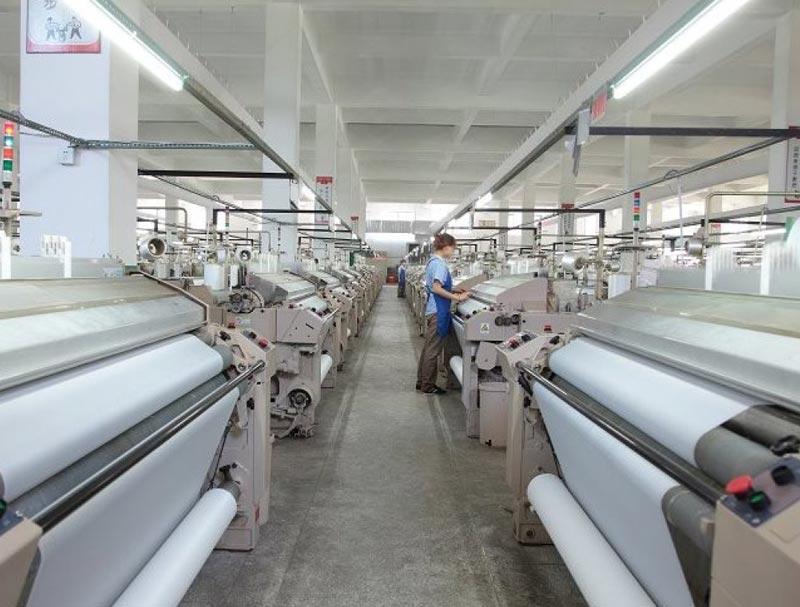Mythbusters Series: Chemical Module
Article
Almost all manufacturing goods (96%) use chemicals in their production. For the textile and apparel industry in particular, tracing chemical usage in your supply chain is imperative for business security, longevity and sustainability.
Tracing the use of chemicals in your supply chain is complex, time-consuming and data-intensive. Tracking the chemicals used by the formulators through to the manufacturers is complicated enough. But then you have to add compliance audits, risk assessments and testing data. Nevertheless, these steps are a critical part of any apparel and textile business and not something that you can afford to ignore.
Whether you are working for a brand, supplier or other type of organization, let’s now debunk a few misconceptions surrounding chemical management processes.
Myth #1 – “Transforming the fashion industry into a more sustainable business model will take a long time, and ultimately it means that customers will have to pay more.”
Our take on it: Tracking your chemical management and wastewater emissions across your value chain provides all brands and manufacturers with a low-cost approach to taking corrective measures now. It has also been proven by numerous recent studies that consumers are willing to pay more for ethical and sustainable brands and that showing sustainability improvements can even win over loyalty toward a brand. The Capgemini Research Institute found that 77% of consumers are more willing to spend with a company that has a corporate social responsibility pledge. So, it’s in the fashion industry’s best interest to act now to avoid losing its advocates to other brands that are on a more sustainable path. The good news is that with a smart process and the right technology, it is possible to keep your costs from rising or even reduce them with real-time data insights about your operations.
CleanChain’s Solution: Chemical Module helps you choose safer, more ethical formulators and chemicals for your apparel and track and manage for ongoing improvements. This solution provides transparency throughout the supply chain and helps everyone work faster toward sustainability commitments.
Myth #2 – “It is so easy to buy clothing and footwear these days, surely there is no need to be concerned about the use of dangerous chemicals in the production process or harmful impacts on people or the planet.”
Our take on it: Unfortunately, this is not the case. Popular global brands still use many toxic chemicals. Insider reported on common chemicals lurking in your jeans, T-shirts and workout clothes. Here are just a few of them, to give you an idea:
- “Waterproof” or “stain-resistant” garments can contain PFAS. Exposure to PFAS, often referred to as “forever chemicals”, has been associated with kidney and testicular cancers, liver damage and developmental issues.
- Azo dye, the blue dye that rubs off your new pair of jeans, is the most common form of dye used in textile production and can release cancer-causing chemicals called amines. Certain forms of azo dyes have already been banned from clothing in the European Union.
- On Black Friday, 24 November 2023, Greenpeace Spain launched the initial findings of its investigation on second-hand clothing by tracking 29 garments which were put in “recycling” containers intended for a “second life” So far 14 of the 29 garments have been detected outside Spain (48%), in eight different countries. Five of the garments were tracked to the United Arab Emirates, four to Pakistan and individual items to India, Romania, Egypt, Morocco, Togo and Chile. Some of these garments could still be on their way to their final destination, apart from the garment sent to Romania which was sold in a second-hand clothing store, showing that this garment has a second life. Greenpeace Spain also analysed international trade data on used clothing from Spain to better understand how it works, which are the main destinations and the prices of second hand garments sold in every country.
- Toxic chemicals have also been found in children’s clothing. Through in-depth investigative reporting, Wicker’s new title explores the unregulated use of toxic chemicals used in the production of textiles and clothing, the lasting harm they can cause, and what steps individuals can take to protect themselves and work for change.
CleanChain’s Solution: We track and measure the chemical usage in your value chain against 3rd-party standards to identify hazardous chemical usage, drive safer chemical management practices and choose more sustainable alternatives.
Myth #3 – “It is impossible to know and track every chemical used in the supply chain.”
Our take on it: With the rise in hazardous chemical usage and the knowledge of how harmful it can be to the environment and life, it has never been so critical to monitor your conformance against industry standards like the ZDHC MRSL. But historically, it has been very difficult to track this. An ESG report from Coupa stated that almost three-quarters of businesses (73%) cannot tell if their closest supply chain partners meet any kind of ESG standards, including their own! Even so, brands are responsible for the safety of their consumers and their commitments to sustainability. And the entire supply chain, including formulators, manufacturers, etc., are responsible for the health and safety of their workers and the local environments in which they operate. With the right tools, brands can and should gain insights into each and every chemical used in their supply chains.
CleanChain’s Solution: Chemical Module has chemical inventory and chemical scoring features that help brands and suppliers ensure transparency and traceability within the entire supply chain. If formulators are not operating responsibly or making big enough environmental improvements to align with your sustainability goals, you can quickly seek alternative chemicals and formulators to help you achieve better ESG performance.
Summary: Achieving sustainability in your supply chain is imperative
The chemical industry works directly with 96% of manufactured goods, according to Energy.gov, so organizations that are developing greener supply chains to meet their CSR, ESG or sustainability goals are looking for equally committed chemical suppliers. McKinsey stated that over half (56%) of Chief Procurement Officers consider sustainable sourcing to be a key strategic driver of business going forward. Just recently, a Barclay’s study also found that £7.1 billion in contracts were cancelled across 12 months with UK retailers due to suppliers that failed to meet “stringent ethical and sustainable standards.”
CleanChain’s Chemical Module platform makes it easy for brands and suppliers to communicate seamlessly on chemical usage, potential risk and conformance. The unified platform also identifies areas that could benefit from performance improvements, so that your business can make positive changes faster.
Email us: cleanchaininfo@adec-innovations.com









